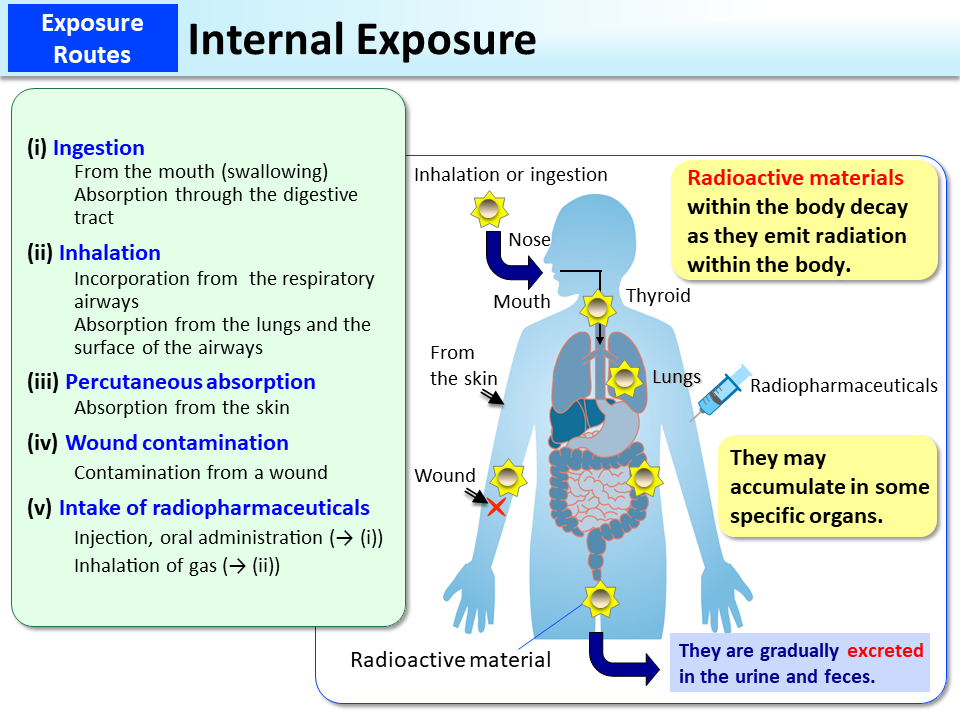Internal Exposure
Internal exposure occurs due to radioactive materials being taken in the following routes: ingestion together with food (ingestion); incorporation while breathing (inhalation); absorption from the skin (percutaneous absorption); penetration from a wound (wound contamination), and administration of radiopharmaceuticals through injection, etc.
Radioactive materials incorporated into the body emit radiation within the body. Accumulation in some specific organs may occur depending on the types of radioactive materials.
This is largely due to the physicochemical properties of radioactive materials. For example, strontium, having similar properties to calcium, tends to accumulate in calcium-rich parts such as bones once it enters the body; cesium, because of its properties similar to potassium, tends to distribute throughout the body once it enters the body.
Iodine, being a constituent element of thyroid hormones, tends to accumulate in the thyroid, whether it is radioactive iodine or stable iodine (p.127 of Vol. 1, “Thyroid”).
- Included in this reference material on March 31, 2013
- Updated on March 31, 2019

